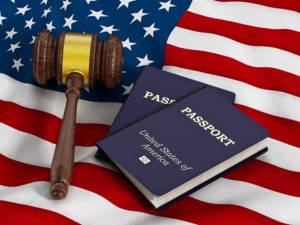2010 Tax Relief Act creates a 100% writeoff for heavy SUVs used entirely for business: HISTORY REPEATS ITSELF
[vc_row][vc_column][vc_column_text]OLD RULE:
A calendar year taxpayer bought a $50,000 heavy SUV in June of 2010 and used it 100% for business in 2010. It may write off $40,000 of the cost of the vehicle on its 2010 return, as follows:
… $25,000 expensing deduction (Sec. 179(b)(6) Limit, see below under “History”), plus
… $12,500 of bonus first year depreciation ($50,000 − $25,000 of expensing × .50 = $12,500), plus
… $2,500 of regular first-year depreciation ($50,000 − $25,000 of expensing − $12,500 bonus depreciation × .20 = $2,500.
NEW Rule:
Now 100% first-year writeoffs for heavy SUVs. Under the 2010 Tax Relief Act, the bonus first-year depreciation percentage is 100% (instead of 50%) for bonus-depreciation-eligible “qualified property” that is generally (1) placed in service after Sept. 8, 2010 and before Jan. 1, 2012, and (2) acquired by the taxpayer after Sept. 8, 2010 and before Jan. 1, 2012. Qualified property includes property to which MACRS applies with a recovery period of 20 years or less. Autos and trucks are 5-year MACRS property and thus qualify for bonus depreciation (assuming business use exceeds 50% of total use). (Code Sec. 168(k)(2)(D))
Thus, a taxpayer that buys and places in service a new heavy SUV after Sept. 8, 2010 and before Jan. 1, 2012, and uses it 100% for business, may write off its entire cost in the placed-in-service year. There is no specific rule barring this result for heavy SUVs. Thus, if the taxpayer in our illustration above had bought the heavy SUV in, say, October of 2010, it could write off the full $50,000 cost of the vehicle on its 2010 return.
History Repeats Itself
The old George Bush Loophole that, for about 2 years, allowed people to write-off 100% of the cost of their Hummer used for business…that was ended 10/22/2004:
Heavy SUVs—those with a GVW rating of more than 6,000 pounds—are exempt from the luxury auto dollar caps because they fall outside of the definition of a passenger auto in Code Sec. 280F(d)(5).. To deal with this “SUV tax loophole,” the American Jobs Creation Act of 2004 (Public Law 108-357) imposed a limit on the expensing of heavy SUVs. Under Code Sec. 179(b)(6), not more than $25,000 of the cost of a heavy SUV placed in service after Oct. 22, 2004 may be expensed under Code Sec. 179. These rules apply, with some exceptions, to SUVs rated at 14,000 pounds GVW or less.
If you use your SUV less than 100%, all these rules apply based on the percentage of business use for the SUV. So, if based on mileage during the year, you use an SUV 80% for business and 20% for personal use, you would apply these rules to the 80% business use portion of the costs of the SUV. Below 50% business use, no Sec. 179 deduction is allowed.
Political comment: On this issue, Presidents Obama and Bush came to the same conclusion, which upset many people who can’t afford heavy SUVs and write them off in the 1st year as a tax deduction.
Feel free to call or write us if you need assistance with this issue.[/vc_column_text][/vc_column][/vc_row]
Thinking About Giving up Your U.S. Citizenship? Think Twice
Thinking About Giving up Your U.S. Citizenship? Think Twice While not a lot of people ever entertain the thought of giving up their U.S. citizenship, there are more people every year that are making that choice. Among them are several wealthier people whose main reason for renouncing is to escape the country’s overloaded tax system;…
Health Care For Senior Citizens – Understanding Medicare!
Health Care For Senior Citizens – Understanding Medicare! By Dennis Wolfe In America having health care cost protection (also known as medical insurance) is not a right. Neither is it a right to access health care services. Health care services in strict economic definitions are simply services for which we consumers pay fees. As consumers…
Rate Yourself Using Debt-to-income Ratio
Rate Yourself Using Debt-to-income Ratio By Linda Stern WASHINGTON (Reuters) – If you were a company, what would the analysts be saying about you? Most investors use financial ratios to grade the companies the average debt to income ratio by age buy and sell, but they rarely subject their own finances to the same…
Taxpayers Have Until April 17 to File and Pay
Taxpayers Have Until April 17 to File and Pay Taxpayers across the nation will have until Tuesday, April 17, 2007, to file their 2006 returns and pay any taxes due, the Internal Revenue Service announced today. Taxpayers will have extra time to file and pay because April 15 falls on a Sunday in 2007, and…




